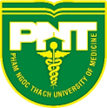Introduction
Health literacy plays a crucial role in patient care and outcomes. It refers to a person’s ability to obtain, understand, and use healthcare information to make informed decisions about their health. In clinical practices, healthcare professionals have the responsibility to ensure that patients have the necessary health literacy skills to actively participate in their own care. This blog post aims to explore the importance of health literacy capacity in clinical practices and provide strategies for enhancing it.
The Impact of Health Literacy
Low health literacy can have significant negative consequences for patients. It can lead to misunderstanding of medical instructions, non-compliance with treatment plans, and poor health outcomes. Studies have shown that individuals with low health literacy are more likely to have higher healthcare costs, increased hospitalizations, and reduced overall quality of life. Therefore, it is crucial for clinical practices to prioritize health literacy as an essential component of patient care.
Strategies for Enhancing Health Literacy Capacity
1. Clear Communication
Effective communication is key to improving health literacy. Healthcare professionals should use plain language and avoid medical jargon when interacting with patients. They should explain medical terms in simple terms and ensure that patients fully understand their diagnosis, treatment options, and medication instructions. Additionally, using visual aids, such as diagrams or videos, can enhance comprehension and retention of information.
2. Health Education Materials
Providing patients with easy-to-understand health education materials can empower them to take an active role in their own care. These materials should be written at an appropriate reading level, visually appealing, and culturally sensitive. They should cover topics such as preventive care, chronic disease management, and healthy lifestyle choices. Clinical practices can collaborate with health literacy experts or utilize resources from reputable organizations to develop high-quality educational materials.
3. Patient Engagement
Engaging patients in their healthcare decisions is essential for improving health literacy. Healthcare professionals should encourage patients to ask questions, express concerns, and actively participate in the decision-making process. This can be achieved through shared decision-making approaches, where patients and healthcare providers collaborate to determine the most appropriate treatment plan based on the patient’s preferences and values.
4. Health Literacy Training for Healthcare Professionals
Enhancing health literacy capacity in clinical practices requires healthcare professionals to have the necessary knowledge and skills. Providing training on health literacy can help them effectively communicate with patients and address their health literacy needs. This training can cover topics such as health literacy assessment, plain language communication, and cultural competency. By investing in the professional development of healthcare providers, clinical practices can ensure that their staff is equipped to meet the health literacy needs of their patients.
5. Technology and Digital Solutions
Utilizing technology and digital solutions can enhance health literacy capacity in clinical practices. Online patient portals, mobile applications, and interactive educational tools can provide patients with access to personalized health information, appointment reminders, and medication management resources. These digital solutions can be designed with user-friendly interfaces and tailored to meet the diverse needs of patients, ultimately improving their health literacy and engagement in their own care.
Conclusion
Health literacy capacity in clinical practices is crucial for improving patient outcomes and reducing healthcare disparities. By implementing strategies such as clear communication, providing health education materials, engaging patients, offering health literacy training for healthcare professionals, and utilizing technology, clinical practices can enhance their ability to effectively communicate with patients and empower them to make informed decisions about their health. Prioritizing health literacy will not only benefit individual patients but also contribute to a more equitable and patient-centered healthcare system.
